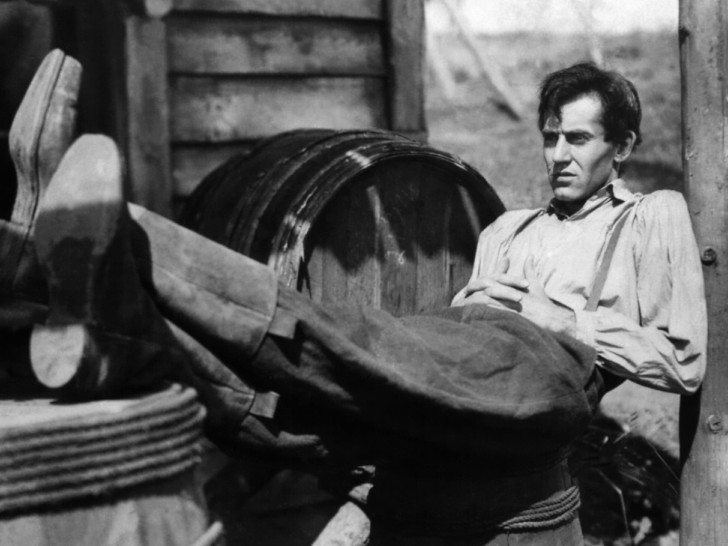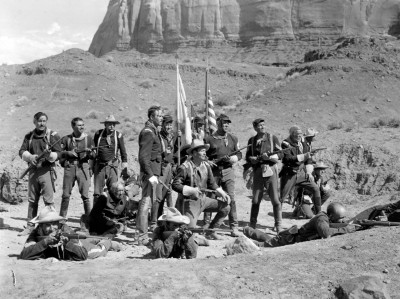
Young Mr. Lincoln
With Henry Fonda, Alice Brady, Marjorie Weaver.
US, 1939, 35mm, black & white, 100 min.
Shot on the heels of the landmark Stagecoach, John Ford's Young Mr. Lincoln brought the director his second critical and commercial success of 1939. Alongside The Grapes Of Wrath (1940) and My Darling Clementine (1946), this picture comprises a trifecta of masterworks exploring the American mythology that Ford and emerging talent Henry Fonda would make for Darryl Zanuck’s 20th Century Fox. In fact, it was Zanuck who offered the plum role of the fledgling lawyer/statesman to Fonda, who initially demurred, put off by the daunting prospect of approaching a character of such hallowed dimensions. According to Fonda's account, the director practically shamed him into accepting the part: “You're not playing the Great Emancipator but a jack-legged lawyer.”
Such indeed is the case as we see our lanky future leader, fresh out of law school, and wet-behind-the-ears ambling into the frame. Riding astride a mule and playing the jaw harp, our man lands In Springfield, Illinois with the purpose of setting up shop and launching into the next chapter of his storied career. Fonda's simple and self-effacing Abe circa 1837 has knowledge under his hat yet lacks the experience and maturity that fosters wisdom. His wide-eyed face is still without a whisker of the trademark beard.
Ford and screenwriter Lamar Trotti steer clear of a heavy-handed solemnization of young Abe's early years. Assuming correctly that the viewer knows all too well the lore of the ensuing acts, they opt for a tone and a rhythm that is colloquial and playful. The story unfurls with an unconventional narrative structure that is in perfect keeping with its subject’s gradual formation, moving episodically through various genres: folk tale, family melodrama, biblical allegory, comic slice of Americana, and finally: courtroom thriller. (Even here there are jokes and sight gags aplenty.) Fonda's Abe assimilates it all with wonder, a mischievous wit and a staggering intelligence—first and foremost by embodying a compelling alternative to the corrosive ethos of pioneer masculinity by striving toward an enlightened version that aspires to a higher standard: one that fuses the best of man's law with that of God's.
The director long considered Young Mr. Lincoln a personal favorite. We can see why. On this President's Day 2019, all about looms abundant cause for cynicism and distrust. The facile security of a tribal or mob mentality entices folks on both sides of the political spectrum, as does the inclination to take ourselves too seriously. As Young Mr. Lincoln makes earnestly and spectacularly clear, these we must resist, along with the scourges of greed, prejudice and the derision of truth. Let us repair and rejuvenate ourselves through the majesty of Abe's example. – Steven Brown












